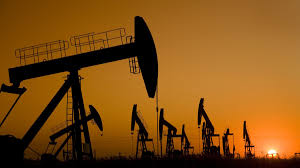
Oil futures climbed on Wednesday, reversing early losses, as the potential of fresh penalties against Russia stoked supply concerns, contrasting concerns about weaker demand as a result of a rise in US oil stockpiles and Shanghai's extended lockdown.
Brent oil futures were trading at $107.13 a barrel as of 0657 GMT, up 49 cents, or 0.5 per cent, after falling to $105.06 earlier in the session.
After falling as low as $100.37 in early trading, U.S. West Texas Intermediate futures rose 21 cents, or 0.2 per cent, to $102.17 a barrel.
On Wednesday, the US and its partners prepared new penalties against Russia in response to civilian fatalities in northern Ukraine, which President Volodymyr Zelenskiy called "war crimes" that demanded retaliation. Russia denied that civilians were being targeted. find out more
"Concerns grew again over supply tightness as United States and Europe are stepping up sanctions on Russia," said Toshitaka Tazawa, an analyst at Fujitomi Securities Co Ltd.
Proposed EU penalties, which must be approved by the bloc's 27 member states, would prohibit the purchase of Russian coal and the entry of Russian ships into EU ports. Britain also encouraged the G7 and NATO members to agree on a timeline for phasing out Russian oil and gas imports.
Earlier price declines were wiped out by a stronger dollar, which makes oil more expensive for holders of foreign currencies, and a surprising growth in US crude stockpiles.
On Wednesday, the dollar rose to its highest level in nearly two years after a rise overnight in response to fresh hawkish remarks from a Federal Reserve official.
According to market sources quoting American Petroleum Institute numbers released on Tuesday, crude and distillate stocks increased last week while gasoline inventories decreased.
Crude stockpiles increased by 1.1 million barrels in the week ending April 1, compared to a fall of 2.1 million barrels predicted by analysts.
Concerns over demand grew as authorities in China's top oil importer extended a lockdown in Shanghai to all 26 million people in the financial centre.
"Higher dollar, an increase in U.S. crude stockpile and concerns over weaker demand in China due to Shanghai's continued lockdown added to pressure in early trade," said Hiroyuki Kikukawa, general manager of research at Nissan Securities.
"Oil prices will likely stay at around $100 a barrel for a while amid demand concerns and an expectation for no conflict in the Middle East during the Muslim fasting month of Ramadan, but they may rise again after Ramadan and as the U.S. driving season kicks off," he said.
Meanwhile, three sources told Reuters that member states of the International Energy Agency (IEA) were still debating how much oil they would jointly release from storage to calm markets, with an announcement due in the coming days.
(Source:www.theglobeandmail.com)
Brent oil futures were trading at $107.13 a barrel as of 0657 GMT, up 49 cents, or 0.5 per cent, after falling to $105.06 earlier in the session.
After falling as low as $100.37 in early trading, U.S. West Texas Intermediate futures rose 21 cents, or 0.2 per cent, to $102.17 a barrel.
On Wednesday, the US and its partners prepared new penalties against Russia in response to civilian fatalities in northern Ukraine, which President Volodymyr Zelenskiy called "war crimes" that demanded retaliation. Russia denied that civilians were being targeted. find out more
"Concerns grew again over supply tightness as United States and Europe are stepping up sanctions on Russia," said Toshitaka Tazawa, an analyst at Fujitomi Securities Co Ltd.
Proposed EU penalties, which must be approved by the bloc's 27 member states, would prohibit the purchase of Russian coal and the entry of Russian ships into EU ports. Britain also encouraged the G7 and NATO members to agree on a timeline for phasing out Russian oil and gas imports.
Earlier price declines were wiped out by a stronger dollar, which makes oil more expensive for holders of foreign currencies, and a surprising growth in US crude stockpiles.
On Wednesday, the dollar rose to its highest level in nearly two years after a rise overnight in response to fresh hawkish remarks from a Federal Reserve official.
According to market sources quoting American Petroleum Institute numbers released on Tuesday, crude and distillate stocks increased last week while gasoline inventories decreased.
Crude stockpiles increased by 1.1 million barrels in the week ending April 1, compared to a fall of 2.1 million barrels predicted by analysts.
Concerns over demand grew as authorities in China's top oil importer extended a lockdown in Shanghai to all 26 million people in the financial centre.
"Higher dollar, an increase in U.S. crude stockpile and concerns over weaker demand in China due to Shanghai's continued lockdown added to pressure in early trade," said Hiroyuki Kikukawa, general manager of research at Nissan Securities.
"Oil prices will likely stay at around $100 a barrel for a while amid demand concerns and an expectation for no conflict in the Middle East during the Muslim fasting month of Ramadan, but they may rise again after Ramadan and as the U.S. driving season kicks off," he said.
Meanwhile, three sources told Reuters that member states of the International Energy Agency (IEA) were still debating how much oil they would jointly release from storage to calm markets, with an announcement due in the coming days.
(Source:www.theglobeandmail.com)





